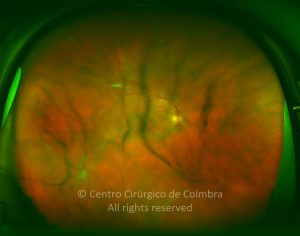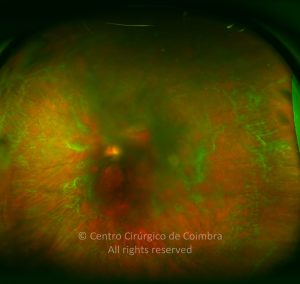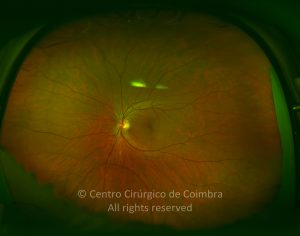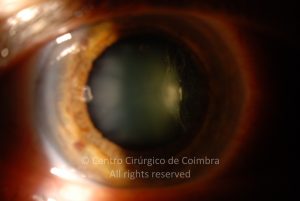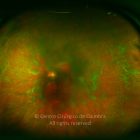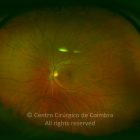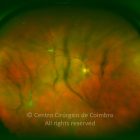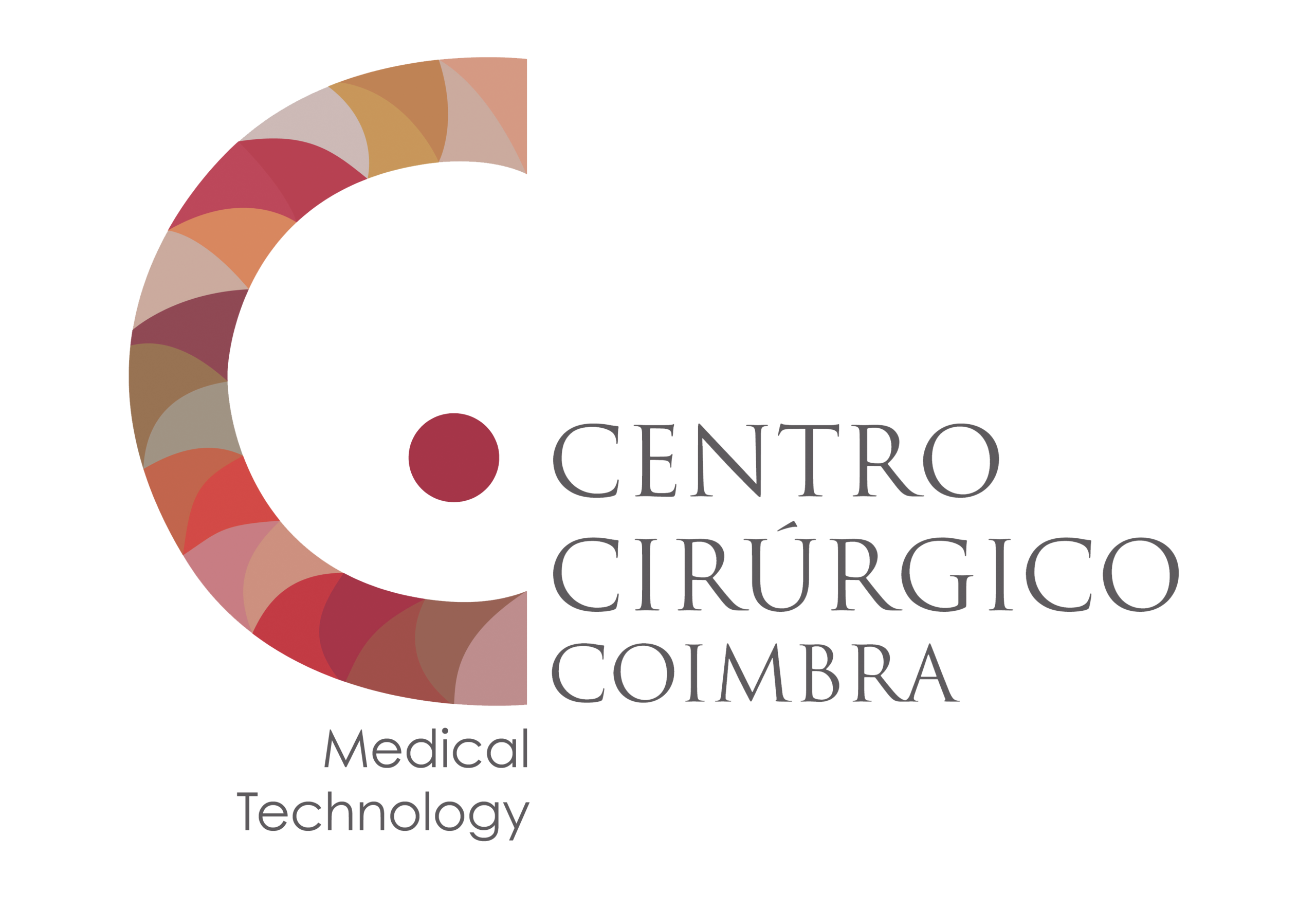Amyloidosis is a term that refers to a variety of disorders, characterized by the deposition of amyloid proteins in several organs and tissues.
Amyloids are fibrillar insoluble protein condensates that acquire a terciary conformation, known as beta-pleated sheat.
Patients with amyloidosis can be divided into three groups: primary familial amyloidosis (PFA), familial amyloidotic polyneuropathy (FAP) and secondary amyloidosis. Only PFA and FAP are associated with vitreous deposits.
In PFA, portions of immunoglobulin light chains form tissue deposits (AL amyloid). FAP is related to mutations in the protein transthyretin (most commonly at locus 18q11.2-q12.1), inherited in an autosomal dominant fashion.
Systemic clinical features include renal dysfunction, cardiomyopathy and peripheral neuropathy.
Ophthalmological features include ecchymosis of lids, proptosis, ocular palsies, internal ophthalmoplegia and neuroparalytic keratitis. Glaucoma may be caused by amyloid deposition in the aqueous outflow areas. In the posterior segment, several features such as granular glass-wool opacities that form in the vitreous cortex, strands attached to the retina, granular deposits along the retinal vessels, retinal vascular occlusions, cotton-wool spots, retinal neovascularization, and compressive optic neuropathy can be observed.
Symptoms of vitreous involvement include floaters, decreased vision and sometimes diplopia.
Differential Diagnosis
- Asteroid hyalosis
- Old vitreous hemorrhage
- Vitritis
References
Basic and Clinical Science Course – 2011-2012 – Section 12 – Retina and Vitreous, American Academy of Opthalmology
Basic and Clinical Science Course – 2011-2012 – Section 4 – Ophthalmic Pathology and Intraocular Tumors, American Academy of Opthalmology
Ola Sandgren, Ocular Amyloidosis, with Special Reference to the Hereditary Forms with Vitreous Involvement, Surv Ophthalmol 40 (3) November-December 1995.





